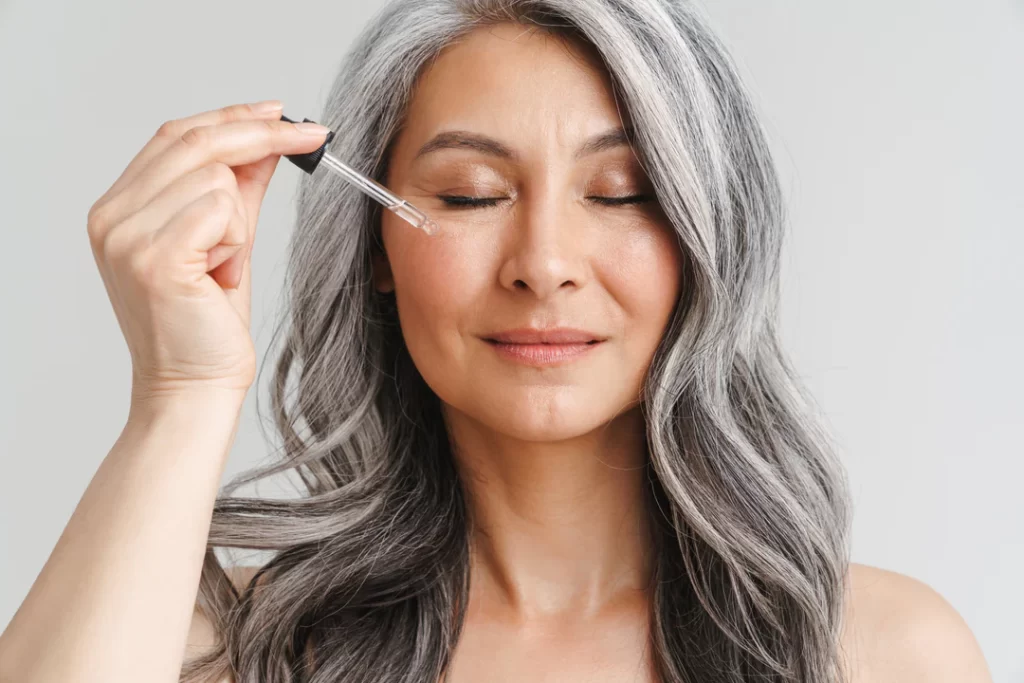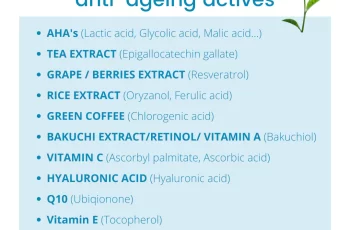
Can You Use Retinol and Alpha Arbutin Together?
In today’s blog post, we’ll be investigating two powerhouse ingredients that both provide impressive skin benefits. If you are a skincare fan by now, you’d have an understanding that retinol is quite a tricky ingredient to include into your daily routine. With this is in mind, it can often feel a little daunting to consider using other ingredients together on the skin.
With any luck, today we will be diving into finding out more about retinol and alpha arbutin and whether using them together will leave you with an improved complexion, or should it be avoided completely. Let’s firstly start off with a quick refresh on each ingredient and the benefits you can expect to see when using them in your daily regime.
What does retinol do for the skin?
A potent form of vitamin A, retinol can deliver impressive results to the skin, particularly any concerns with frequent breakouts, or signs of premature ageing like fine lines and wrinkles. It is often mistaken that retinol provides the same exfoliating properties of chemical exfoliants, such as glycolic acid and salicylic acid. Instead of sloughing the dead skin cells off the skin surface, instead retinol works at increasing the skin cell turnover pushing fresh, new skin cells to the top of the skin resulting in a glowing, youthful complexion.
You will also find that retinol is able to work in the lower layers of the skin aiding a boost in collagen and elastin production improving the skin and reversing any signs of sagging.
Additionally, retinol also can combat uneven skin tone ensuring that areas of hyperpigmentation, dark spots, sun damage, and post acne scarring become faded and less noticeable to the naked eye.
What does alpha arbutin do for the skin?
Known for being an effective brightening ingredient, alpha arbutin can help tackle the appearance of pigmentation and well as preventing any further damage occurring on the skin surface.
Derived from the bearberry plant, extracts of alpha arbutin are found in various skincare formulations that help regulate the production of melanin or pigmentation of the skin. Serums, lotions, and moisturisers are the most common products that contain alpha arbutin and can often work well with other active ingredients, such as vitamin C, kojic acid and niacinamide. These ingredients alone are often labelled as being difficult to use with other potent actives, this simply demonstrates how easy it is to team alpha arbutin with other skincare ingredients.
Can you use retinol and alpha arbutin together?
Yes, absolutely! As surprising as this may be for you to hear, considering both ingredients are highly potent. There are a few reasons why it is effective to use retinol and alpha arbutin together, mainly because of the ease of using alpha arbutin in your routine without the worry of it causing irritation or reaction to the skin. The other is the fact that each ingredient works in different areas of the skin and so can get to work delivering results without competing.
As effective as these two powerhouse ingredients are at improving the overall complexion and health of the skin, it is important to consult with a doctor or medical professional before applying anything new to the face. Once you have decided on which products you’ll use, I would also suggest performing a patch test for 24 hours before applying it directly to your face for added peace of mind.
What can you not mix with retinol?
There are a few skincare ingredients that should be avoided when using retinol, such as vitamin C, benzoyl peroxide, and AHA/BHA acids. This is because it is often thought that using retinol with these exfoliating actives can be too much for the skin resulting in it becoming stripped of the vital oil needed for the protective barrier to remain healthy leaving it weakened to free radical damage.
However, this does not mean you should not use the mentioned ingredients at all, but instead choose separate times of day to use them or alternate the day to avoid applying them the same day as your retinol product. By using your active ingredients this way, you will reap the rewards whilst bypassing any negative side effects. If you wanted to know more about what not to mix with retinol, check out our dedicated blog post about the topic.
Can I use niacinamide with alpha arbutin and retinol?
Yes, you can, using all three of these ingredients will ensure the complexion remains healthy and balanced, with the common drying side effects of retinol being counteracted by niacinamide hydrating the skin. The best way of using niacinamide with alpha arbutin and retinol is by ensuring you are applying them during the optimal time of day. For example,
You can use niacinamide twice a day, so apply it to the face morning and evening. The humectant traits of the active will draw water into the skin and lock it into place.
This will combat the drying effects of retinol and help strengthen the skin barrier.
You are also able to use alpha arbutin twice a day, just make sure you leave enough time in your evening application before following it with retinol.
Finally, retinol should be used only in the evening, due to it being sensitivity to sunlight and any exposure to UV light will render it useless. If you are wanting to know more about using niacinamide with alpha arbutin, check out this blog post that goes into more detail about how these ingredients work together. Does alpha arbutin help with hyperpigmentation? Yes, if anything, it is praised as one of the most effective ingredients to use for combating hyperpigmentation. With its ability to regulate the production of melanin in the skin alpha arbutin can help target any signs of pigmentation, from dark spots, age spots, sun damage, and areas of hyperpigmentation. Over time you’ll find the pigment becomes faded and the complexion will appear a lot more even all over. The bonus of alpha arbutin as a skin brightening ingredient is the fact it doesn’t make the skin more sensitive to sun exposure meaning it is a great product to use all year round. I would still suggest ensuring you apply a daily SPF of 30 and above to protect the skin from any potential or further sun damage. I hope that today we have answered some of your questions about using retinol and alpha arbutin together. Don’t forget you can come and follow us over on Instagram and if you have any further questions, you can find me in the direct messages.
DQH Can I use salicylic acid first and then vitamin C?
It’s easy to create a skincare routine, but knowing how to use it is another thing entirely. In most cases, if you’re not getting the desired skin results, it could be due to the layering of conflicting ingredients. So, is it possible that salicylic acid and vitamin C are such ingredients? Or are these active ingredients the duo that’s been missing from your skincare routine? If you want answers, stick around because today we are going to explain the benefits of salicylic acid and vitamin C and how they can be used in your daily life.
What are the benefits of salicylic acid for skin?
Salicylic acid is one of the most commonly used beta hydroxy acids and is favored by many people with oily, acne-prone skin. This acid is derived from willow bark, and unlike its water-soluble relatives (called alpha-hydroxy acids), salicylic acid is oil-soluble, which means it can penetrate deeper into the lower layers of the skin. Once it reaches the lower layers, it can help unclog pores of excess sebum, dirt, bacteria, debris, and impurities. This results in clearer skin tones and greater definition.
Not only does salicylic acid benefit the underlying layers, but the outer surface of the skin benefits as well. When applied to the skin, salicylic acid removes the buildup of dead skin cells. This is accomplished by breaking the bonds that hold dead cells to the surface. Over time, this can cause the complexion to look dull and prone to acne, blackheads, and other blemishes.
If you’d like to learn more about salicylic acid and how it can improve your skin, check out this dedicated blog post from a beauty insider.
What are the benefits of vitamin C for skin?
Vitamin C is considered one of the most powerful antioxidants, which means it is very effective at fighting free radicals and preventing them from causing further skin damage. Examples of free radicals include pollution, central heating, UV rays and harsh climate. They attack proteins, fats and cell membranes as soon as they come into contact with the skin, causing signs of premature aging such as fine lines and wrinkles as well as hyperpigmentation, flaky patches of skin and loss of elasticity.
Many people usually prefer to use vitamin C in their morning routine as this ingredient gives the complexion a radiant glow. You’ll also find that vitamin C can target areas of hyperpigmentation, plumping the skin and reducing the appearance of fine lines and wrinkles.
The thing about vitamin C is that there are a lot of outdated studies going back to the 1950s that describe vitamin C as an unstable skin component. Thanks to improvements in modern technology, this is no longer the case as all products now contain a stable form of vitamin C.
Visit The Beauty Insider to learn more about vitamin C. So please check out our blog post.
Can I use salicylic acid first and then vitamin C?
Yes, you absolutely can. In fact, it’s thought that using salicylic acid before using vitamin C ensures it penetrates faster and works faster.
This is an efficient way to utilize two power sources, and the reason has to do with pH. For example, the skin’s natural pH is about 4.7, making it slightly acidic. Salicylic acid and vitamin C are also both acidic, and you’ll find that vitamin C is absorbed quickly into the skin. Therefore, using salicylic acid beforehand can increase the acidity of the skin and allow vitamin C to penetrate into the skin faster.
While this is considered an effective way to combine two powerful ingredients, you need to be aware of your skin type and how it reacts to certain active ingredients. Even people with perfect, normal skin can experience skin sensitivity and irritation. Therefore, always consult a doctor or dermatologist before using any new products on your skin.
It’s also important to follow skin application rules. In this case, you need to use the product correctly to ensure you get the best results for your skin. If you’re not sure what I mean, the basic rule for skin is to start with the thinnest consistency and work your way up to the thickest consistency. This prevents a barrier from forming on the surface, preventing other active ingredients from penetrating the skin.
Can I use salicylic acid at night and vitamin C in the morning?
Yes, absolutely, this is considered the most effective way to get returns without any adverse side effects. This is because there is enough time between applications to ensure that the skin’s pH levels return to balance.
You’ll also find that Vitamin C is rich in antioxidants and is perfect for use in the morning to ensure your skin is protected and looking its healthiest. Due to the small size of salicylic acid molecules, it is an acid that is able to reach the deepest parts of the skin. While this is effective at keeping skin clear, it also increases the risk of irritation and photosensitivity. Therefore, many people prefer to use powerful BHAs in their evening routine without exposure to UV rays, pollution, or harsh weather.
Warning: If you avoid using sunscreen every day, none of these ingredients will do what your skin needs. The combination of chemical peels and powerful ingredients increases the risk of further damage to the skin’s surface. Use SPF 50 every day to keep your skin protected and your lipid barrier healthy, even on cloudy days, keeping your skin in top condition.


